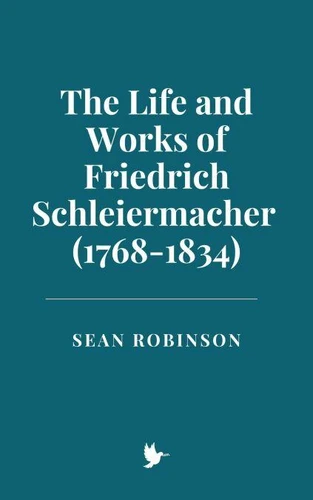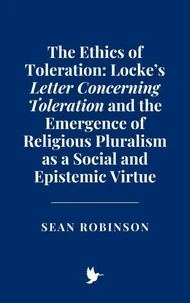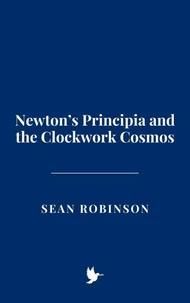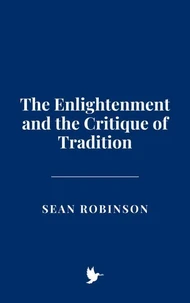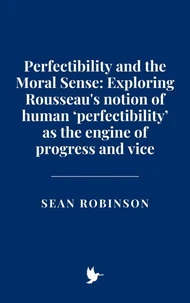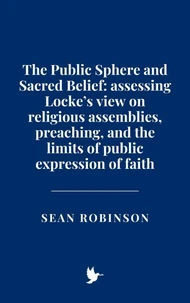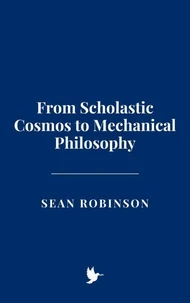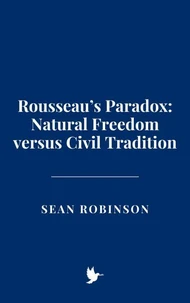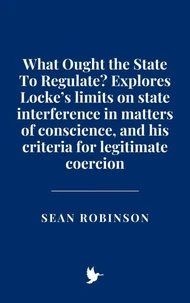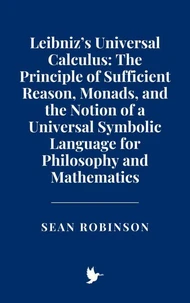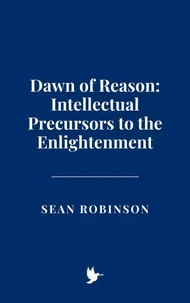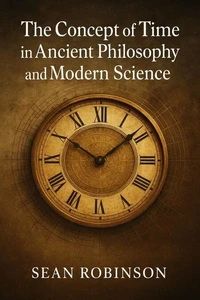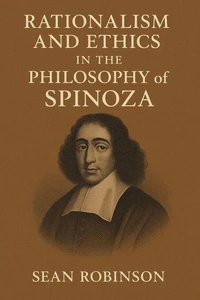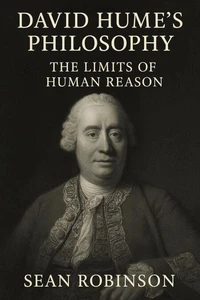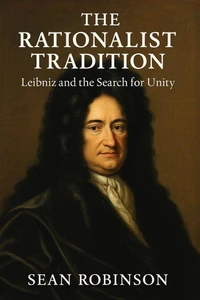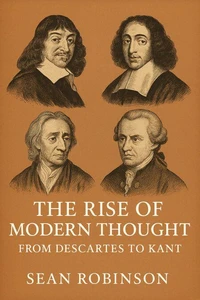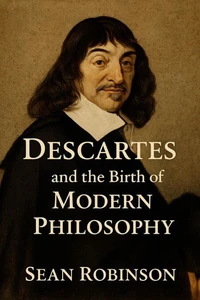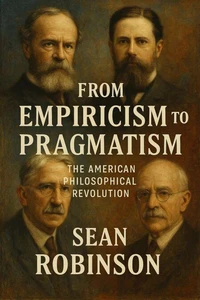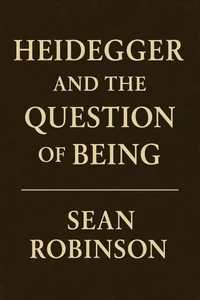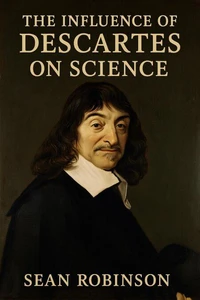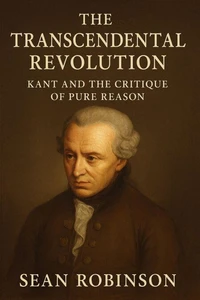The Life and Works of Friedrich Schleiermacher (1768 - 1834)
Par :Formats :
Disponible dans votre compte client Decitre ou Furet du Nord dès validation de votre commande. Le format ePub est :
- Compatible avec une lecture sur My Vivlio (smartphone, tablette, ordinateur)
- Compatible avec une lecture sur liseuses Vivlio
- Pour les liseuses autres que Vivlio, vous devez utiliser le logiciel Adobe Digital Edition. Non compatible avec la lecture sur les liseuses Kindle, Remarkable et Sony
 , qui est-ce ?
, qui est-ce ?Notre partenaire de plateforme de lecture numérique où vous retrouverez l'ensemble de vos ebooks gratuitement
Pour en savoir plus sur nos ebooks, consultez notre aide en ligne ici
- FormatePub
- ISBN8230752035
- EAN9798230752035
- Date de parution16/11/2024
- Protection num.pas de protection
- Infos supplémentairesepub
- ÉditeurIndependently Published
Résumé
This book is a study of the life and work of Friedrich Schleiermacher (1768-1834), a pivotal figure in modern theology, philosophy, and religious thought. Known as the "Father of Modern Theology, " Schleiermacher sought to reconcile the challenges of Enlightenment rationalism and Romantic subjectivity with the enduring truths of Christian faith. His groundbreaking works, including On Religion: Speeches to Its Cultured Despisers and The Christian Faith, redefined theology by emphasizing the experiential and relational dimensions of religion, particularly through the concept of the "feeling of absolute dependence."Through 20 chapters, this study examines Schleiermacher's contributions in detail, situating his ideas within the historical and intellectual contexts of his time.
It traces his development from his Moravian upbringing, his theological and philosophical education at Halle, and his engagement with Romanticism and German Idealism, to his influential roles as a pastor, educator, and reformer. Each chapter provides deep analysis and commentary on Schleiermacher's major works, central concepts, and their relationships with other thinkers, such as Immanuel Kant, Johann Gottlieb Fichte, and Baruch Spinoza.
The book also addresses the controversies surrounding Schleiermacher's reinterpretation of traditional Christian doctrines, his influence on 19th-century liberal theology, and the critiques he faced from Neo-Orthodoxy and existential theology in the 20th century. Finally, it examines Schleiermacher's ongoing relevance in the 21st century, particularly in discussions about religious pluralism, interfaith dialogue, hermeneutics, and the integration of faith and culture in a secularizing world.
This comprehensive study presents Schleiermacher as a thinker deeply attuned to the complexities of faith, reason, and modernity. His ability to bridge tradition and innovation, the individual and the communal, the finite and the infinite, continues to inspire and challenge theologians, philosophers, and scholars across disciplines. By highlighting Schleiermacher's enduring impact, the book invites readers to engage with his vision of faith as a dynamic, transformative, and deeply human experience in an ever-changing world.
It traces his development from his Moravian upbringing, his theological and philosophical education at Halle, and his engagement with Romanticism and German Idealism, to his influential roles as a pastor, educator, and reformer. Each chapter provides deep analysis and commentary on Schleiermacher's major works, central concepts, and their relationships with other thinkers, such as Immanuel Kant, Johann Gottlieb Fichte, and Baruch Spinoza.
The book also addresses the controversies surrounding Schleiermacher's reinterpretation of traditional Christian doctrines, his influence on 19th-century liberal theology, and the critiques he faced from Neo-Orthodoxy and existential theology in the 20th century. Finally, it examines Schleiermacher's ongoing relevance in the 21st century, particularly in discussions about religious pluralism, interfaith dialogue, hermeneutics, and the integration of faith and culture in a secularizing world.
This comprehensive study presents Schleiermacher as a thinker deeply attuned to the complexities of faith, reason, and modernity. His ability to bridge tradition and innovation, the individual and the communal, the finite and the infinite, continues to inspire and challenge theologians, philosophers, and scholars across disciplines. By highlighting Schleiermacher's enduring impact, the book invites readers to engage with his vision of faith as a dynamic, transformative, and deeply human experience in an ever-changing world.
This book is a study of the life and work of Friedrich Schleiermacher (1768-1834), a pivotal figure in modern theology, philosophy, and religious thought. Known as the "Father of Modern Theology, " Schleiermacher sought to reconcile the challenges of Enlightenment rationalism and Romantic subjectivity with the enduring truths of Christian faith. His groundbreaking works, including On Religion: Speeches to Its Cultured Despisers and The Christian Faith, redefined theology by emphasizing the experiential and relational dimensions of religion, particularly through the concept of the "feeling of absolute dependence."Through 20 chapters, this study examines Schleiermacher's contributions in detail, situating his ideas within the historical and intellectual contexts of his time.
It traces his development from his Moravian upbringing, his theological and philosophical education at Halle, and his engagement with Romanticism and German Idealism, to his influential roles as a pastor, educator, and reformer. Each chapter provides deep analysis and commentary on Schleiermacher's major works, central concepts, and their relationships with other thinkers, such as Immanuel Kant, Johann Gottlieb Fichte, and Baruch Spinoza.
The book also addresses the controversies surrounding Schleiermacher's reinterpretation of traditional Christian doctrines, his influence on 19th-century liberal theology, and the critiques he faced from Neo-Orthodoxy and existential theology in the 20th century. Finally, it examines Schleiermacher's ongoing relevance in the 21st century, particularly in discussions about religious pluralism, interfaith dialogue, hermeneutics, and the integration of faith and culture in a secularizing world.
This comprehensive study presents Schleiermacher as a thinker deeply attuned to the complexities of faith, reason, and modernity. His ability to bridge tradition and innovation, the individual and the communal, the finite and the infinite, continues to inspire and challenge theologians, philosophers, and scholars across disciplines. By highlighting Schleiermacher's enduring impact, the book invites readers to engage with his vision of faith as a dynamic, transformative, and deeply human experience in an ever-changing world.
It traces his development from his Moravian upbringing, his theological and philosophical education at Halle, and his engagement with Romanticism and German Idealism, to his influential roles as a pastor, educator, and reformer. Each chapter provides deep analysis and commentary on Schleiermacher's major works, central concepts, and their relationships with other thinkers, such as Immanuel Kant, Johann Gottlieb Fichte, and Baruch Spinoza.
The book also addresses the controversies surrounding Schleiermacher's reinterpretation of traditional Christian doctrines, his influence on 19th-century liberal theology, and the critiques he faced from Neo-Orthodoxy and existential theology in the 20th century. Finally, it examines Schleiermacher's ongoing relevance in the 21st century, particularly in discussions about religious pluralism, interfaith dialogue, hermeneutics, and the integration of faith and culture in a secularizing world.
This comprehensive study presents Schleiermacher as a thinker deeply attuned to the complexities of faith, reason, and modernity. His ability to bridge tradition and innovation, the individual and the communal, the finite and the infinite, continues to inspire and challenge theologians, philosophers, and scholars across disciplines. By highlighting Schleiermacher's enduring impact, the book invites readers to engage with his vision of faith as a dynamic, transformative, and deeply human experience in an ever-changing world.

